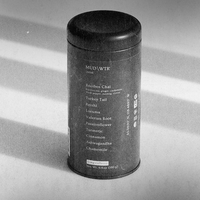So you’re having trouble sleeping, and that audiobook of Harrison Ford reading Karl Marx’s Das Kapital just isn’t doing the trick? On nights like this, it might be tempting to try to knock yourself out with a stiff drink or two. By some estimates, 20 percent of American adults use alcohol for this very reason. Not good.
Well, put that bottle of Scotch back where you found it, my friend. There are some good reasons not to go to bed drunk … starting with the fact that it will result in what health professionals call “crappy sleep.”
Tossing and Turning
Sure, that glass of booze before bed might help you fall asleep faster, but it will drastically lower the quality of the rest that you get. As a sedative, alcohol induces sleep by effectively knocking you out, resulting in a measurably inferior type of slumber.
While you’re sleeping, the alcohol activates the sympathetic nervous system, which regulates your fight-or-flight response. This causes your heart rate to increase and your brain to release neurochemicals that it normally wouldn’t. As a result, you’ll wake up about 17 percent more often throughout the night than is considered healthy.
The more drunk you are when you go to bed, the more disrupted your REM sleep will be. This takes a negative toll on your mental and emotional health, memory, attentiveness, ability to learn and overall lifespan. Even in the short term, you’ll feel foggy in the morning at the very least.
As if that Weren’t Enough …
- Drinking before sleeping causes a decrease in the release of human growth hormone (HGH), which regulates things like cell repair, metabolism, strength, physical performance and recovery from illness or injury. Low levels of HGH can diminish quality of life, lead to weight gain and heighten the risk of disease.
- Alcohol can also fuel sleep disorders like insomnia and sleep apnea, make you more likely to snore, walk and/or talk in your sleep, and heighten the risk of falling injuries in older people who drink before bed. Not grim enough? The triumvirate of booze, sleep apnea and snoring has been linked to sudden death, heart attack, stroke and arrhythmia.
- In a short amount of time, you can build up a tolerance to alcohol’s sleep-inducing effects. Alcohol tolerance of any kind can cause big problems, but especially when paired with sleep troubles.
What’s the takeaway here, then? Easy–don’t drink and sleep! It’s just not worth it. Save the booze for its proper use: buying top hats for your pets online.
Damon Orion is a writer, musician, artist and teacher based in Santa Cruz, CA. Read more of his work at damonorion.com.
Read more: How to get Back in Sync with Your Circadian Rhythm
Read more: 3 Signs of Caffeine Overconsumption
Read more: Sleep School: What we Learned from Matthew Walker's Masterclass



